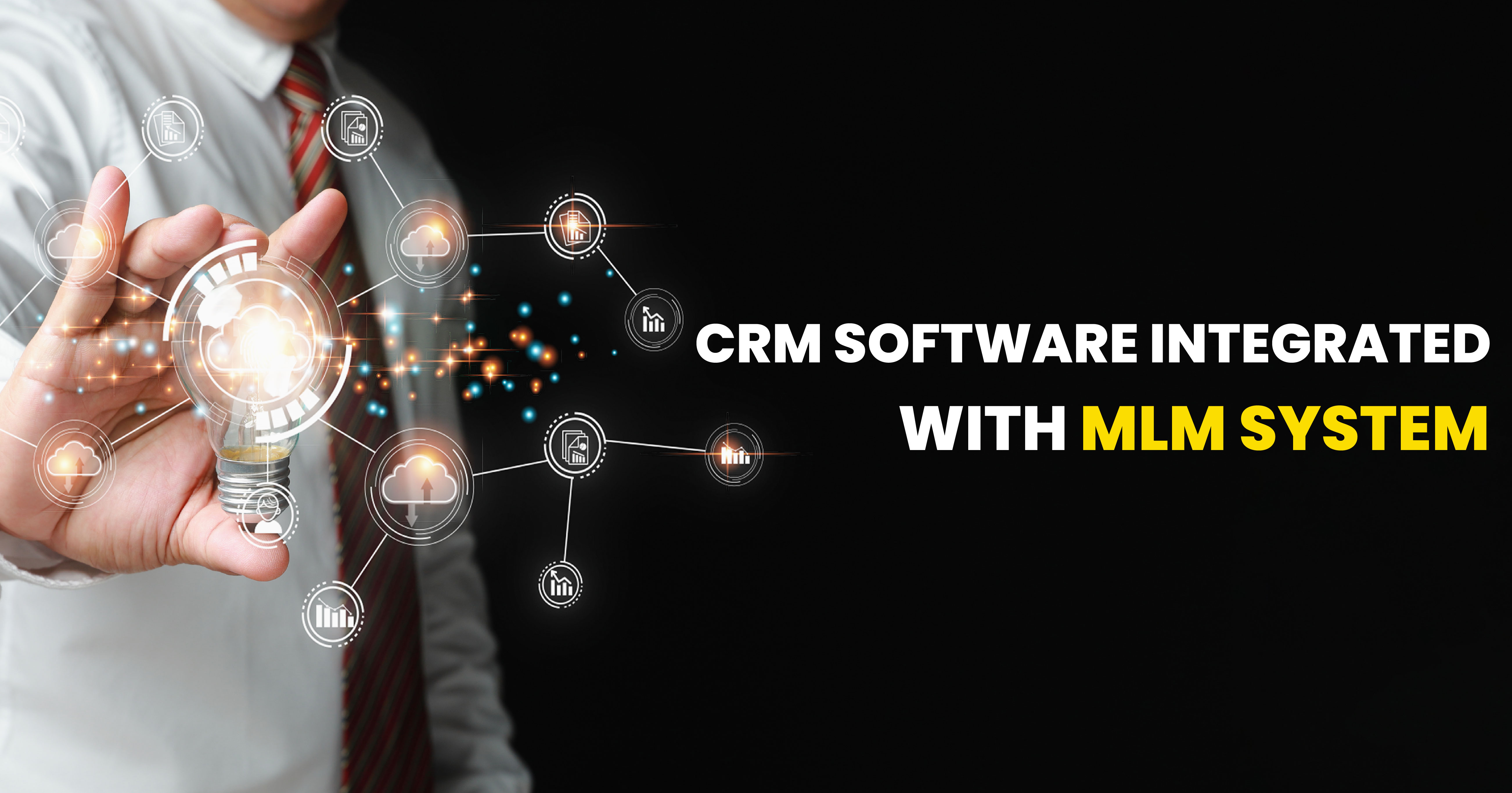Common challenges in implementing MLM software?

Posted On: 15th Apr 2024 04:50
MLM (Multi-Level Marketing) software offers numerous benefits to businesses looking to implement a multi-level marketing strategy. With its advanced features and functionalities, MLM software simplifies the complexities of managing a multi-level marketing program. Here are some key advantages of using MLM software:
Efficient Management:
MLM software provides businesses with a centralized platform to manage their entire multi-level marketing operations. It streamlines tasks such as member registration, sales tracking, commission calculations, and payout management. This automation reduces manual efforts and increases operational efficiency.
Real-time Tracking:
MLM software allows businesses to track sales and performance in real time. Through intuitive dashboards and reports, businesses can monitor the progress of their distributors, identify top performers, and analyze sales trends. This data-driven approach enables businesses to make informed decisions and optimize their marketing strategies.
Customizable Compensation Plans:
MLM software offers flexibility in designing and implementing compensation plans. Whether it's a binary, matrix, or unilevel plan, businesses can configure the compensation structure according to their requirements. This customization helps in aligning the compensation plan with the business goals and motivating distributors to perform better.
Enhanced Communication:
MLM software facilitates seamless communication between distributors and the company. It provides features like messaging, notifications, and email integration to keep distributors informed about new products, promotions, and company updates. This improves collaboration, fosters a sense of community, and strengthens relationships within the network.
Automation of Processes:
MLM software automates several manual processes, saving time and reducing errors. Tasks like commission calculations, payout processing, and inventory management are handled efficiently by the software. This automation frees up resources, allowing businesses to focus on growth strategies and customer acquisition.
Scalability:
MLM software is designed to support the growth and scalability of businesses. As the network expands and the number of distributors increases, the software can handle the load and accommodate new members seamlessly. This scalability ensures that the MLM program can grow without any hindrance.
Data Security:
MLM software prioritizes the security of sensitive data. It employs robust security measures such as encryption, access controls, and regular backups to safeguard critical information. This instills confidence in distributors and customers, ensuring the integrity of the MLM program.
In summary, MLM software provides businesses with the tools they need to effectively manage and grow their multi-level marketing programs. From streamlining operations to enhancing communication, the benefits of MLM software are significant.
Common Challenges in Implementing MLM Software -
While MLM software offers numerous advantages, implementing it can be a complex task that comes with its own set of challenges. Businesses must be aware of these challenges to ensure a successful implementation. Let's explore the common challenges faced when implementing MLM software:
Lack of Customization Options -
One of the major challenges businesses face is the lack of customization options in the available MLM software solutions. Every business has unique requirements and needs a software solution that can be tailored accordingly. However, finding software that offers the necessary customizability can be difficult. This can result in compromises or the need for additional development, leading to delays and increased costs.
To overcome this challenge, businesses should thoroughly evaluate the customization capabilities of MLM software before making a decision. It is important to choose a software solution that allows for easy customization of features, compensation plans, and user interfaces. This ensures that the MLM software aligns perfectly with the business's specific needs and requirements.
Difficulty in Integrating with Existing Systems -
Integrating MLM software with existing systems such as Customer Relationship Management (CRM) or Enterprise Resource Planning (ERP) platforms can be a daunting task. For seamless operations and accurate data synchronization, it is crucial to integrate MLM software with other systems used by the business. However, compatibility issues, data mapping complexities, and technical challenges can arise during the integration process.
To overcome this challenge, businesses should prioritize software solutions that offer seamless integration capabilities. MLM software with pre-built integrations or APIs (Application Programming Interfaces) can simplify the integration process. Involving experienced IT professionals or seeking assistance from the software vendor can ensure smooth integration and avoid any disruptions to existing systems.
Complexity in Compensation Plan Configuration -
Configuring the compensation plan in MLM software can be a complex task, especially for businesses with unique and intricate compensation structures. Different MLM programs have varying compensation plans such as binary, matrix, or unilevel, each with its complexities. Configuring the compensation plan accurately in the software requires a deep understanding of the plan structure and the ability to translate it into the software's configuration settings.
To overcome this challenge, businesses should collaborate closely with MLM software providers during the implementation process. Communicating the compensation plan requirements, providing detailed documentation, and conducting thorough testing can ensure that the software accurately reflects the desired compensation structure. Additionally, seeking expert guidance from MLM consultants or compensation plan specialists can help businesses navigate the complexities of configuration.
Inadequate Training and Support -
MLM software often comes with a wide range of features and functionalities that users need to understand and utilize effectively. Inadequate training and support can hinder user adoption and lead to underutilization of the software. Without proper training, distributors may struggle to navigate the software, resulting in errors, inefficiencies, and frustration.
To overcome this challenge, businesses should invest in comprehensive training programs for distributors and internal staff. Training should cover all aspects of using the MLM software, from basic functionalities to advanced features. Providing ongoing support and access to training resources such as video tutorials or user manuals can empower users and encourage adoption. User feedback and continuous improvement of training materials can further enhance the user experience.
Scalability Issues -
As businesses grow and expand their MLM programs, scalability becomes a critical factor. MLM software that is not designed to handle a large number of distributors or high transaction volumes can become a bottleneck. Performance issues, slow response times, and system crashes can occur, impacting the overall efficiency of the MLM program.
To overcome scalability issues, businesses should choose MLM software that is known for its scalability and performance. Scalable software solutions can handle the increasing load as the network grows without compromising on performance. Thoroughly evaluating the scalability capabilities of the software, including the ability to handle large databases and concurrent users, is essential to ensure a smooth and uninterrupted MLM program.
In conclusion, implementing MLM software comes with its fair share of challenges. From customization and integration to training and scalability, businesses must be prepared to overcome these hurdles. By understanding these challenges and taking proactive steps to address them, businesses can ensure a successful implementation of their MLM software and maximize the potential of their multi-level marketing programs.
Tips for Overcoming Challenges in Implementing MLM Software -
Implementing MLM software successfully requires careful planning, collaboration, and proactive measures. Here are some tips to help businesses overcome the challenges associated with MLM software implementation:
Thoroughly evaluate customization options:
Before selecting an MLM software solution, assess its customization capabilities. Look for software that allows customization of features, compensation plans, and user interfaces. Discuss specific customization requirements with the software vendor to ensure a perfect fit for the business's needs.
Involve stakeholders from different departments:
To ensure seamless integration, involve stakeholders from different departments such as IT, marketing, and finance. Their expertise and insights can help identify potential integration issues and ensure that the MLM software integrates smoothly with existing systems.
Seek expert guidance:
If the compensation plan configuration seems complex, consider seeking guidance from MLM consultants or compensation plan specialists. Their expertise can help navigate the intricacies of configuring the compensation plan accurately in the MLM software.
Invest in comprehensive training:
Allocate resources for comprehensive training programs for both distributors and internal staff. Training should cover all aspects of using the MLM software and should be ongoing to keep users updated with new features and functionalities.
Prioritize ongoing support:
Provide ongoing support to users through various channels such as email, phone, or online chat. Encourage users to reach out with any questions or issues they may have. Regularly update training resources and documentation to address common questions and challenges.
Choose scalable software:
Ensure that the MLM software chosen is scalable and can handle the growth of the MLM program. Evaluate the software's scalability capabilities, including its ability to handle large databases and concurrent users, to avoid performance issues as the network expands.
Collaborate with the software vendor:
Maintain a strong relationship with the MLM software vendor throughout the implementation process. Regular communication, feedback, and collaboration can help address any challenges that arise and ensure a successful implementation.
Implementing MLM software can be a complex task, but by following these tips and being prepared for the challenges, businesses can navigate the implementation process smoothly and maximize the benefits of their multi-level marketing programs.
Conclusion -
Implementing MLM software comes with its fair share of challenges, but with careful planning, collaboration, and proactive measures, businesses can overcome these hurdles. From customization and integration to training and scalability, being aware of the common challenges and taking steps to address them is crucial for a successful implementation.
MLM software offers numerous benefits, including efficient management, real-time tracking, customizable compensation plans, enhanced communication, automation of processes, and scalability. These advantages make MLM software a valuable tool for businesses looking to implement a multi-level marketing strategy.
To overcome challenges in implementing MLM software, businesses should prioritize software solutions that offer customization options, seamless integration capabilities, and comprehensive training and support. Choosing scalable software and collaborating closely with the software vendor can further ensure a smooth implementation.
By understanding the common challenges and following the tips provided, businesses can navigate the implementation process with confidence, optimize their multi-level marketing programs, and achieve success in their MLM endeavors.




